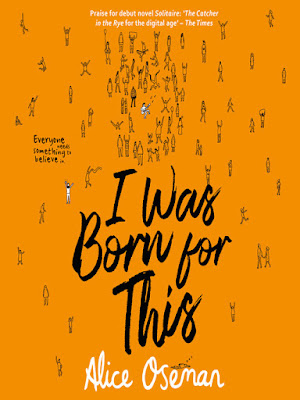Book Review: The Magic Fish By Trung Le Nguyen
By Trung Le Nguyen
Finished reading: 15/08/21
My rating: 5/5 stars
“[…] immigrants seem to take on the flatness of a fairy tale archetypes, as interchangeable pieces in recurring stories of upheaval and diaspora. In both cases, we prefer to look in from the outside. All the quiet yearnings, the ambient heartaches, and the thousand other little indignities of feeling lost in your own tongue are overlooked and our best-intentioned efforts to be broad and comprehensive.
[…] I wanted to explore how stories can serve both as an
escape and as an anchor for us in our real lives, and maybe, for at least one
story, decenter the gravity of marginalisation to tell a story about one of the
little pieces that orbit around it.”
--Trung Le Nguyen on writing The Magic Fish
The Magic Fish is a debut graphic novel from Vietnamese
American author/illustrator Trung Le Nguyen that follows the story of an
immigrant family and the variations of classic fairy tales across generations that
bring them together.
Wow oh wow. I was expecting to enjoy this book, but I wasn’t
expecting to fall so head over heels in love with it that it immediately became
one of my all-time favourite books. It’s such a beautiful graphic novel and
such a wonderful collection on stories brought together. It’s truly a
masterpiece.
I was truly blown away by the intricacy and level of detail
that was gone into this project. Structurally, this book was so masterfully and
cleverly crafted. The transitions between the real-world characters and the fairy
tale ones were so creative and smooth thanks to the gorgeous use of colour
assigned to each story. I liked how certain beats lined up in parallel with
multiple stories and then went their separate ways, much like the role of storytelling
through the ages.
My favourite part was how each of the characters’
personalities, or “visual vocabulary” as Nguyen calls it, seeped into the fairy
tales they told. For example, Tiến’s experience as a young boy growing up in
the American Midwest in the 1990s was reflected in the visual influences of
European fairy tales, American movies, and western couture of his Cinderella
story. In contrast, his great aunt’s version of Cinderella is visually inspired
by her experience of growing up in 1960s pre-war post-colonial Vietnam with
references to the French Pre-Mod-era fashion. Finally, Tiến’s mother Helen’s
version of The Little Mermaid is reminiscent of her immigration from post-war
Vietnam to America. This is reflected in the influences from Hong Kong wuxia
films in the underwater world to the theatres of 1980s San Francisco. This
aspect was just mind-blowing and worthy of its own dissertation.
I was a huge fan of the fine liner style of artwork. The use
of texture was so exquisite. The lines seemed to flow across the page like
liquid. The combinations of influences were fascinating. I think these really
sum up how Nguyen describes comic books as having parallels with how hybrid
languages in how the words and pictures work together like two languages. Having
read the author’s note, I want to reread the book to appreciate all the layers
of meaning I undoubtedly missed upon reading for the first time.
Overall, I am completely blown away by this book. I could
talk about it for days. As someone who loves fairy tale culture and how they
bring people together, this is the kind of book I wish I could write but never
could. I really hope this isn’t Nguyen’s last graphic novel because I am so
excited to see whatever he may create in future.






Comments
Post a Comment